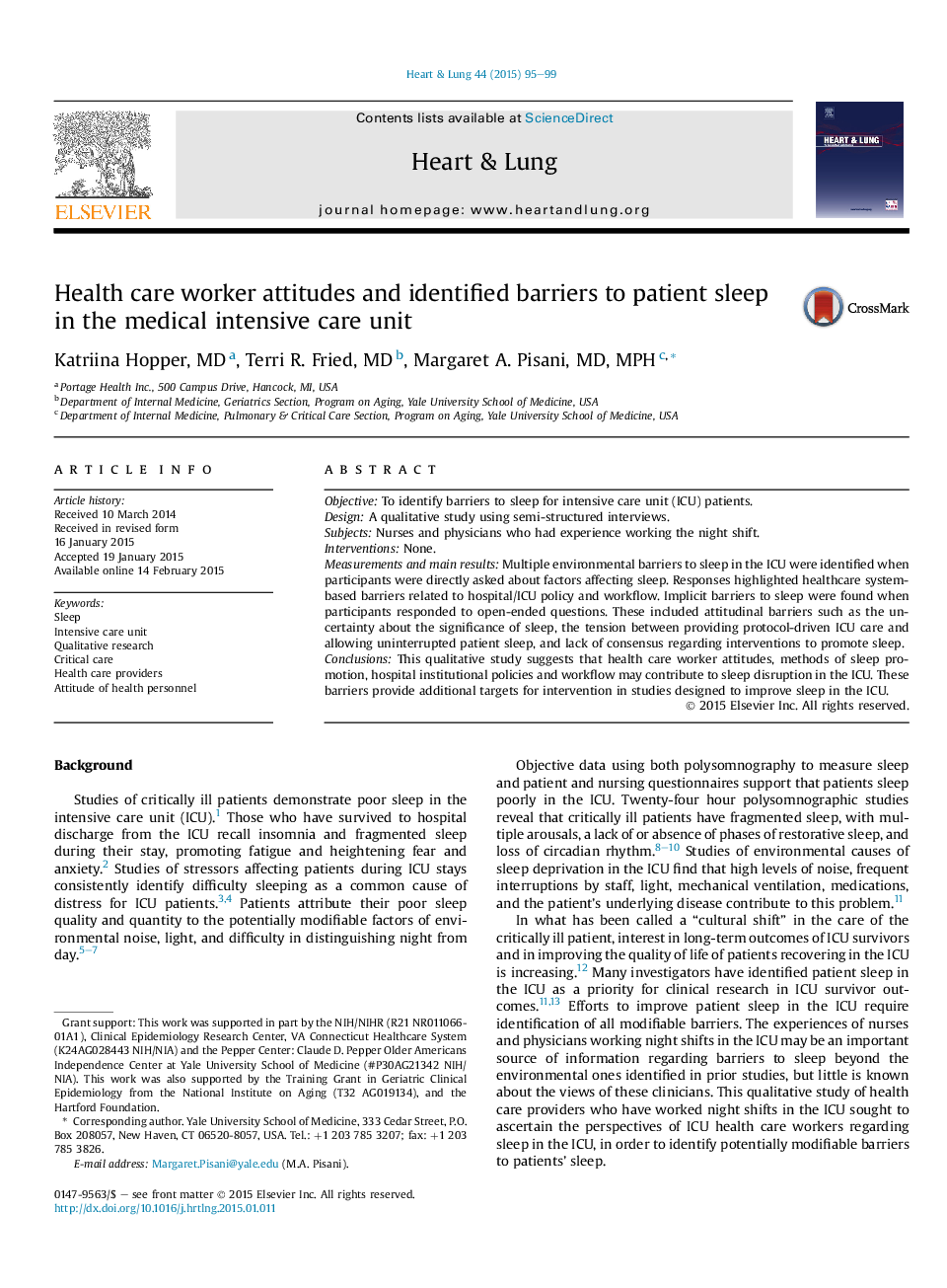| Article ID | Journal | Published Year | Pages | File Type |
|---|---|---|---|---|
| 5869253 | Heart & Lung: The Journal of Acute and Critical Care | 2015 | 5 Pages |
ObjectiveTo identify barriers to sleep for intensive care unit (ICU) patients.DesignA qualitative study using semi-structured interviews.SubjectsNurses and physicians who had experience working the night shift.InterventionsNone.Measurements and main resultsMultiple environmental barriers to sleep in the ICU were identified when participants were directly asked about factors affecting sleep. Responses highlighted healthcare system-based barriers related to hospital/ICU policy and workflow. Implicit barriers to sleep were found when participants responded to open-ended questions. These included attitudinal barriers such as the uncertainty about the significance of sleep, the tension between providing protocol-driven ICU care and allowing uninterrupted patient sleep, and lack of consensus regarding interventions to promote sleep.ConclusionsThis qualitative study suggests that health care worker attitudes, methods of sleep promotion, hospital institutional policies and workflow may contribute to sleep disruption in the ICU. These barriers provide additional targets for intervention in studies designed to improve sleep in the ICU.
